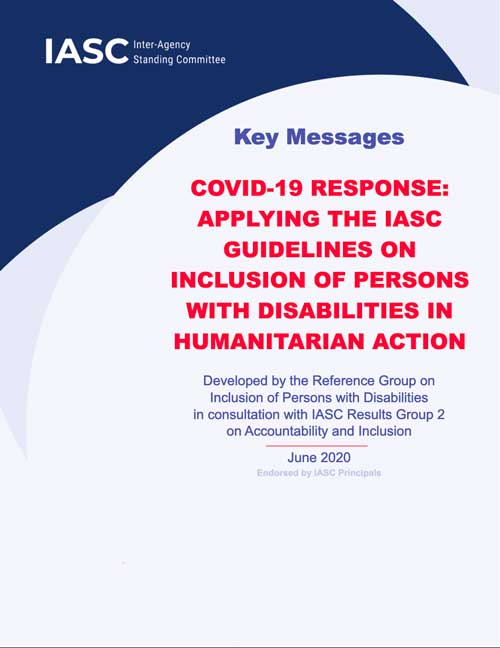While the COVID-19 pandemic is seriously affecting the health, livelihoods, and overall wellbeing of people all over the world, persons with disabilities are disproportionately impacted. The risk factors and consequences of COVID-19 on people with disabilities are even further exacerbated in humanitarian contexts. Persons with disabilities may be at heightened risk of contracting or developing a more severe case of COVID-19 due to barriers to accessing information, preventative measures and health services, while some people may be at heightened risk due to underlying health conditions or reliance on personal assistance. Further, COVID-19 has compounded exclusion of children with disabilities from education; increased risks of violence, exploitation and abuse; and deepened other pre-existing inequalities and marginalization.
To address this situation, how can we ensure that persons with disabilities are included in all aspects of response to COVID-19 in humanitarian contexts? On 17 September, during a webinar organized jointly by ICVA, PHAP, IASC, and the Reference Group on Inclusion of Persons with Disabilities in Humanitarian Action, we discussed how the IASC Guidelines on Inclusion of Persons with Disabilities in Humanitarian Action can be implemented in the COVID-19 response. We started with a presentation of the recent note produced by the Reference Group and endorsed by the IASC on this topic, followed by a discussion of challenges in the current response and ways to overcome them.
The webinar shared practical examples of how response to COVID-19 in humanitarian contexts has been made more inclusive of persons with disabilities, drawing on learning from the past 6+ months to present concrete actions that humanitarian actors can take, in partnership with local organizations of persons with disabilities. The webinar aimed to provide a space for learning and exchange of experience between organizations of persons with disabilities, NGOs, UN entities, and other humanitarian actors.
